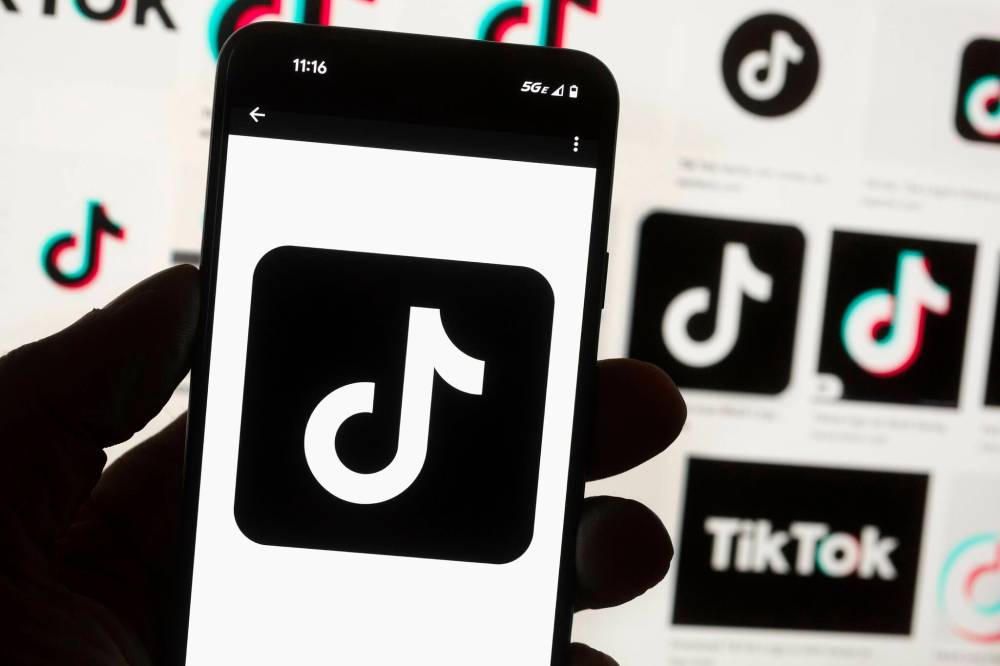Protecting children from online abuse
Advertisement
Read this article for free:
or
Already have an account? Log in here »
To continue reading, please subscribe:
Monthly Digital Subscription
$0 for the first 4 weeks*
- Enjoy unlimited reading on winnipegfreepress.com
- Read the E-Edition, our digital replica newspaper
- Access News Break, our award-winning app
- Play interactive puzzles
*No charge for 4 weeks then price increases to the regular rate of $19.00 plus GST every four weeks. Offer available to new and qualified returning subscribers only. Cancel any time.
Monthly Digital Subscription
$4.75/week*
- Enjoy unlimited reading on winnipegfreepress.com
- Read the E-Edition, our digital replica newspaper
- Access News Break, our award-winning app
- Play interactive puzzles
*Billed as $19 plus GST every four weeks. Cancel any time.
To continue reading, please subscribe:
Add Free Press access to your Brandon Sun subscription for only an additional
$1 for the first 4 weeks*
*Your next subscription payment will increase by $1.00 and you will be charged $16.99 plus GST for four weeks. After four weeks, your payment will increase to $23.99 plus GST every four weeks.
Read unlimited articles for free today:
or
Already have an account? Log in here »
Hey there, time traveller!
This article was published 05/11/2024 (364 days ago), so information in it may no longer be current.
If you’ve ever lost time watching TikTok videos or gotten caught up in the latest Facebook brouhaha on your community association page, you’ve seen a glimpse of the addictive quality these platforms hold.
Social media can be a great tool for staying connected, exchanging ideas and building new relationships, but the dark side has also turned it into an insidious force, creating loneliness and mental health challenges. And I’m talking about its impact on functioning adults — never mind the younger, more impressionable generation. For them, the online world has become a deadly place that is causing unprecedented rates of suicide and a mental health crisis that deserves more attention than is currently provided.
The Canadian Centre for Child Protection is leading a battle against online harms by urging more action to stop the unchecked growth in the number of kids being bullied, harassed, abused, and exploited online.

Michael Dwyer / Associated Press Files
The TikTok logo is displayed on a mobile phone in front of a computer screen. The social media site is just one threat to children’s safety.
“Canada is one of the safest places in the world for children. Unless they’re online,” reads the tagline for their latest public awareness campaign.
It sends chills down my spine just thinking about the darkness that lurks online for vulnerable children and youth. When my kids were growing up, keeping a watchful eye over them at the playground and warning them not to talk to strangers was how I kept them safe. Now abusers are lurking online every minute of the day, looking to harass, sexually exploit and extort the kids they meet there.
Last year alone, Cybertip.ca received 7,000 reports of youth being sexually extorted, mainly on Instagram and Snapchat. This is a 27 per cent increase from the year before. Another initiative to remove child sexual abuse material from the Internet called Project Arachnid is now receiving 20,000 removal requests each day from people around the globe.
The number of youths dying by suicide because of the torment they face by online predators is staggering.
No one knows this more than the grieving family of Amanda Todd, a teenage girl from B.C. who died by suicide after being sexually extorted on Facebook in 2012. They were, regrettably and heartbreakingly, at the forefront of this epidemic. Todd’s suicide took the world by surprise and alerted many of us to the encroaching danger of social media. Calls for action were made back then, yet sadly, mostly went unheeded.
Now Carol Todd, Amanda’s mother, has joined an American-led lawsuit against social media giants for prioritizing engagement over safety, and putting young people at risk. Todd said at a news conference last week that she cannot believe more hasn’t been done to keep kids safe in the 12 years since her daughter’s death.
This lawsuit was filed in the Los Angeles County Superior Court earlier this month on behalf of 11 families — including Todd and the Burke family from PEI who saw their 17-year-old son die by suicide after being sextorted on Snapchat. It alleges that these technology companies “knowingly designed and marketed defective products to kids in order to boost engagement numbers.”
This is not the first lawsuit. Many others are mounting against social media platforms for the harms they cause. In fact, U.S. Surgeon General Vivek Murthy calls it a mental health crisis greatly facilitated by social media. He’s calling for tobacco-like warning labels. Governments on both sides of the border have brought in legislation to try to reduce its devastating impacts.
In Canada, the Liberal government introduced its Online Harms Act, Bill C-63, but it is still not enacted. This legislation would hold social media companies to account if they do not remove harmful content, which is defined as content that sexually victimizes a child or revictimizes a survivor, intimate content communicated without consent, content used to bully a child or induces a child to harm themselves, and content that foments hatred, incites violence, violent extremism or terrorism. It would also create a digital commissioner and an ombudsperson.
Opponents are calling for this bill to be scrapped for its infringement on free speech and its potential to financially incentivize complaints. Under this law, comments you make online deemed to foment hatred or incite violence could potentially cost you thousands in fines. Undoubtedly, a digital commissioner and an ombudsperson is crucial to the process. Ancillary regulations may also be required. Yet if this bill fails to pass before the next federal election, it may take years before measures to reduce online harms are brought in again. The most relevant question we should be asking is how many more kids will die in the time in between.
If you or someone else needs help, call the Kids Help line at 1-800-668-6868. Text 686868.
Rochelle Squires is a recovering politician after 7 1/2 years in the Manitoba legislature. She is a political and social commentator whose column appears Tuesdays. rochelle@rochellesquires.ca
History
Updated on Tuesday, November 5, 2024 3:17 PM CST: Adds missing word



